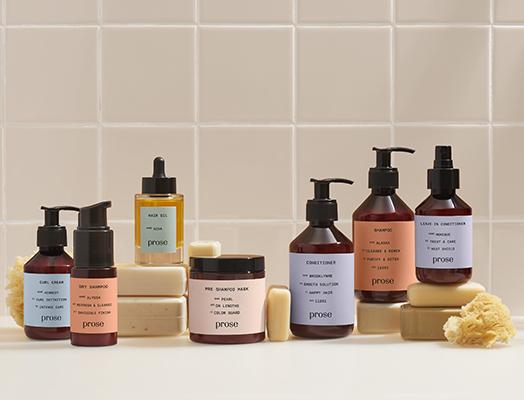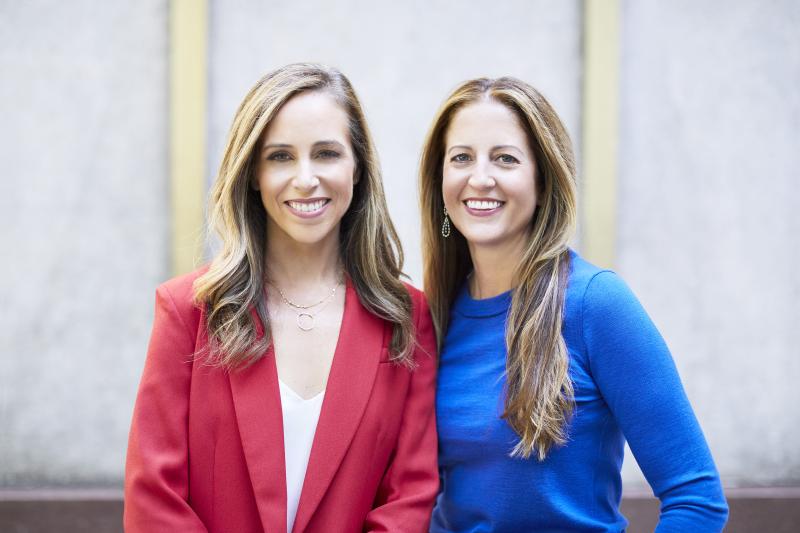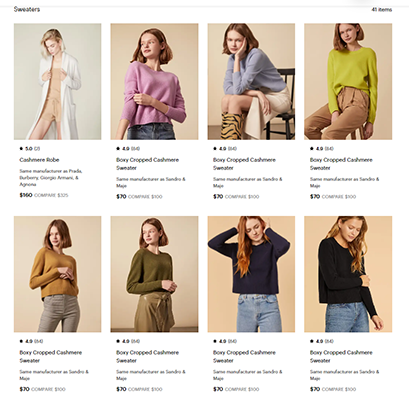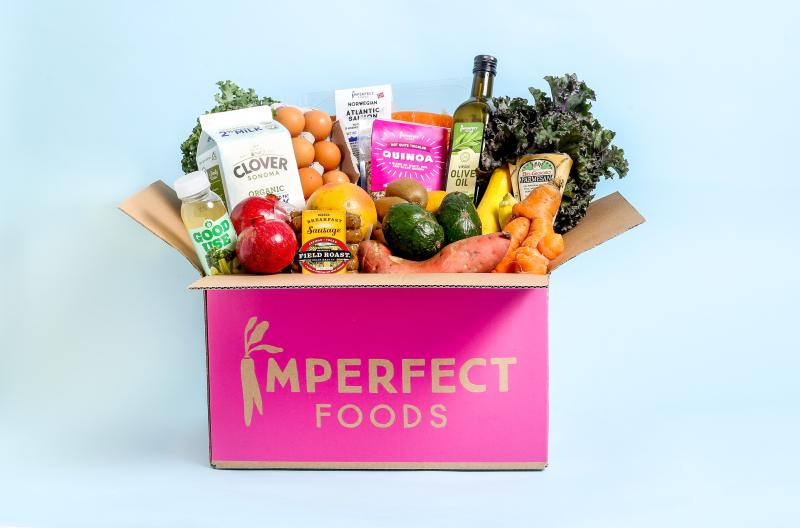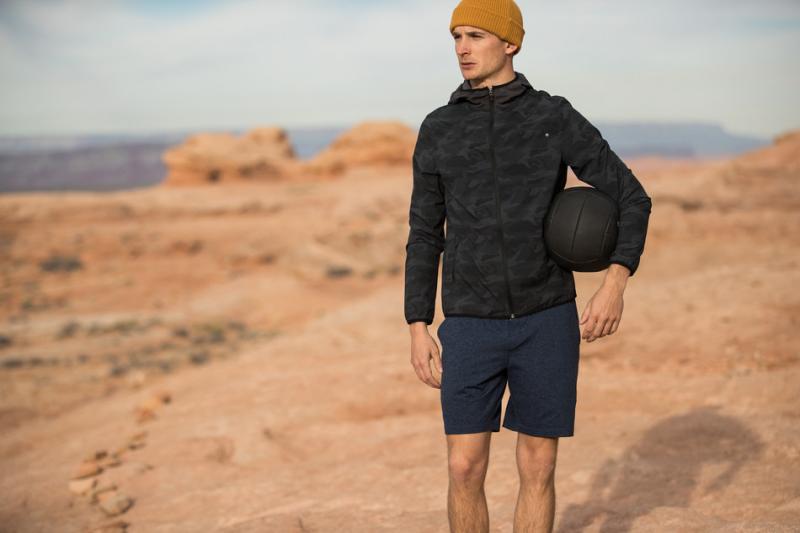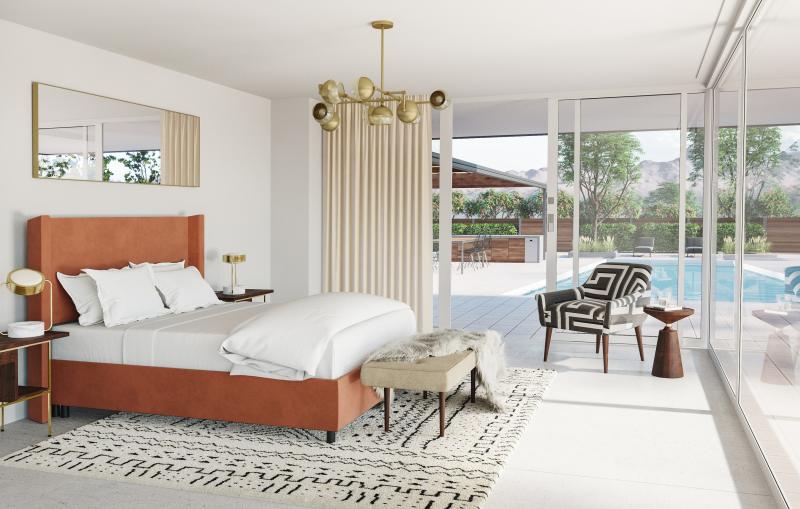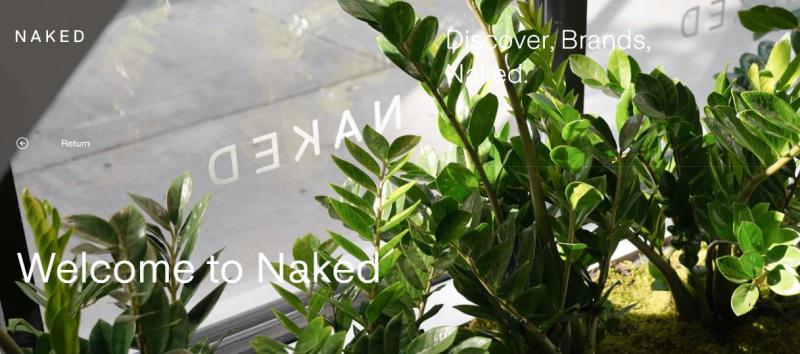The Hot Retail Startups in 2021
After a year of explosive e-commerce growth and shopper behavior upheaval, the retail playing field has been leveled and startups are getting noticed like never before.
Global investors pumped $3.3 billion into 301 deals this year for e-commerce startups. In the U.S. alone, that was $2.1 billion in 110 deals, according to Crunchbase data based on companies working in e-commerce platforms and retail technologies.
Meanwhile, big name retailers were tasked to “think like a startup” and communicate one-on-one with the shopper more than ever before over the last year.
Being unafraid to fail and quick to pivot are qualities that startups embody, but all retailers should practice. Whether a big brand or a startup, all retailers are facing the same challenge now: what problem can your business solve?
While there are plenty of startup retailers that deserve praise this year, RIS’ third annual look at retail startups examines the retailers that caught the eye of our editors for being exceptionally innovative and solving problems for consumers, at a time when they need solutions the most.
For this feature RIS only considered retailers that were five years old or younger. Here we highlight how these retail trendsetters are making an impact on the industry through their distinctive business models and/or original use of technology.
Below is a quick look at the retail startups that are making their mark on the retail industry and disrupting their respective segments. Click here to recall last year's "Hot Retail Startups."
PROSE
While most shoppers purchase their hair care products in mass produced retail settings, Prose thinks there’s a better way. After all, our hair is — quite literally — unique extensions of ourselves, and today’s technology can help retailers deliver experiences that are just as specialized.
Prose cofounder and CEO Arnaud Plas tells RIS that the company leverages technology and data from the first digital consultation with a consumer to the physical product, executed through its propriety backend platform utilizing machine learning.
“From the beginning, we knew we had to reinvent the wheel in order to offer our customers truly custom hair care,” says Plas. “By developing a full stack, we're able to analyze each and every data point to effectively evolve our product innovations and find new and interesting ways to utilize technology that will help continue to fuel our business.”
Prose Spotlight
First product launch: October 2017
Headquarters: Brooklyn, N.Y.
Total funding: $25 million
Employees: 156
Prose’s initial 25-question consultation analyzes over 85 data points to determine an individual's unique formula and custom hair routine, taking into account such factors as scalp condition, weekly workout habits, stress levels and diet.
Its proprietary algorithms then develop a formula for each customer, with more than 79 trillion possible combinations available. Prose has developed a backend system to house each formula, while its Review & Refine feedback loop technology optimizes a customer’s custom formula and improves them as they relate to others with similar results.
This year, Prose, which was founded in 2017 in Brooklyn, NY, also implemented a new proprietary machine in its manufacturing facility that enables it scale up to 30,000 units a day.
Not only does Prose’s tech-focused approach ensure consumers receive the product that’s right for them, but it also cuts down on waste. Unlike with less precise insight into their customers, Prose’s model eliminates the need to mass produce millions of product units on a multi-year cycle.
Primary
Frustrated with the quality and choices in children’s apparel, Primary founders/co-CEOs Galyn Bernard & Christina Carbonell decided to provide a solution to families looking for quality, sustainable kids’ clothing devoid of labels and slogans. In 2015 they launched a gender-neutral and non-prescriptive clothing brand (no boy/girl sections) in every color for every kid and have since raised $50 million to date.
“Since our launch in 2015, we have deliberately avoided trend-focused fast fashion that floods stores today and landfills tomorrow,” Bernard and Carbonell tell RIS. “Our focus has always been on outstanding affordable quality and classic styles intended to be passed from one child to another, and relevant year after year.”
Primary Spotlight
Launched: March 31st, 2015
Headquarters: New York City, NY
Number of employees: 47
First hire: Chief supply chain officer
Growth rate: Over $50 million in 2020, up from almost $30 million in 2018
Sustainability factor: Almost all fabrics feature OEKO-Tex Standard 100 Certification and the retailer is in the process of transitioning to Certified Organic Cotton for all of its cotton rib styles and manufacturing them in a Certified GOTS facility.
Primary uses mock shopping surveys for customer feedback on assortment, which in addition to clothing for ages 0-12, includes family matching PJs for baby, kids, grownups, and now even pets. The retailer also harnesses social media for community building by highlighting user-generated content, including spotlights of diverse children, and costume collaborations with crafters and influencers. In addition, Primary practices acute social listening and implements customer feedback, for example, it added color coded sock toe/heels by size for easier sorting in the wash.
In another spin on Primary’s appeal, the retailer uses inclusive photography shot by real families at home.
When COVID-19 hit Primary was tasked with reconfiguring how they captured upcoming brand content. The retailer has an engaged fan base and has cultivated organic partnerships with families across the country. It enlisted creative and photography-focused families to capture their families in new clothing styles, in their own homes. Primary actually sent all the tools necessary for these families to capture themselves in upcoming products.
Looking ahead, while Primary is currently a U.S. e-commerce retailer, Bernard and Carbonell say they have intentions to open brick-and-mortar in the future.
Italic
Italic takes direct-to-consumer to the next level, pledging to cut out the cost-carrying middleman of the brand. The membership-only retailer sells luxury goods on its e-commerce site, including apparel, footwear, accessories and home goods, with more than 800 products available. In exchange for a $120 annual fee, consumers can purchase at cost products made in the same factories as such brands as Giorgio Armani, Prada and Chanel.
Its website neatly breaks down the manufacturing details, with product descriptions clearly identifying items that carry the same manufacturer as their high-priced counterparts. Other items, such as a pair of diamond earrings for example, are highlighted as having been made in a workshop led by former Cartier and Van Cleef & Arpels artisans.
The company partners with the manufacturers in both design and production of the products, and Italic states on its website that all factories are personally visited by an Italic team member. It also accepts products requests from shoppers via a form on its website.
Italic Spotlight
Launched: 2018
Headquarters: Los Angeles, CA
Funding: $13 million
Products: 800+
This isn’t the first go-round in the subscription game for Italic. It first tried charging consumers $10 per month in exchange for the ability to purchase two lower-priced luxury items. It scrapped the idea after determining the assortment was too small for a valuable experience, founder and chief executive Jeremy Cai told the Wall Street Journal.
Cai notes on the Italic website that the company is “working against everything that our customers have been trained to believe about how retail works, from who they buy from to how much they have to pay for top quality. We’ve heard a lot that Italic seems too good to be true, so we have a long road of brand education ahead of us.”
While there was at one point a wait list to join the service, it was accepting new members as of this writing.
“Our incentives have become aligned with our members, as we do not make money on product sales but instead on focusing on customer happiness and reducing churn,” states Cai. “Our manufacturers still make much more than their traditional wholesale orders with Italic. It’s a win-win for both.”
Imperfect Foods
Everyone can agree, the retail industry needs more solutions to the near overwhelming issue of food waste. Enter Imperfect Foods, whose mission is to eliminate food waste and build a better food system for everyone.
The company offers imperfect, yet perfectly edible produce, affordable pantry items, and quality eggs and dairy, delivered to customers’ doorsteps and offered at up to a 30% discount compared to grocery store prices. The grocery retailer delivers organic or conventional produce boxes plus grocery items on a weekly basis. Once the customer’s shopping window opens they are able to view which items the retailer selected for them that week. Then they can keep what they want, remove what they don’t, and add in addition grocery items.
Imperfect Foods Spotlight
Launched: 2015
Headquarters: New York City, NY
Number of employees: 1,500
Number of customers: 400,000 in 38 states
Sustainability factor: 139 Million pounds of Imperfect food saved
Since launching in 2015, Imperfect Foods has remained hyper focused on eliminating food waste and supporting farmers and producers when it comes to excess and imperfect products. The company now rescues and redistributes food across multiple grocery categories, including produce, shelf-stable goods, dairy, meat and seafood.
Over the past year, the startup has seen impressive growth across key areas of the business. Average order sizes have doubled year-over-year and weekly order volumes have doubled since January 2020. The company closed a Series C funding round of $72 million, led by Insight Partners, in May 2020, bringing its total raised to $119 million. The funds will fuel continued expansion of the grocery delivery service across the country, increase capacity in new and existing fulfillment centers, expand assortment and enhance technology to better connect producers, farmers and customers to the brand's mission to eliminate food waste and build a better food system. Tying back to its mission, Imperfect Foods was on track to save more than 200 million pounds of food from going to waste in 2020.
"We're energized by the continued support from investors as we eliminate food waste and build a better food system for everyone," said CEO Philip Behn. "We're illuminating vast vulnerabilities within our food supply chain and increasing access to fresh and affordable groceries.”
Vuori
The sustainable athleisure market is growing, as millennials increase awareness regarding physical fitness and seek activewear made using environmentally safe practices. Lifelong athlete Joe Kudla, Vuori's founder and CEO, knows this firsthand.
Engaging in outdoor fitness activities such as hiking, yoga, running, and mountain biking, he was continually searching for the appropriate clothing to suit his own athletic endeavors, but found himself dissatisfied with the limited options available in the market. So in 2015 Kudla launched Vuori's first collection of men's athletic apparel that was designed to move and sweat in, but styled for everyday life. In 2019, Vuori received a $45 million investment from growth equity firm Norwest Venture Partners.
Vuori Spotlight
Launched: 2015
Headquarters: Carlsbad, CA
Retail Stores: 6 with plans to open 6 more in 2021
Ethical Manufacturing: Suppliers sign the Vuori Code of Conduct, in which the company sets forth expectations for fair treatment of labor, safe and healthy working conditions and strict environmental practices.
Now, Vuori has six retail stores in its home state of California, in addition to its e-commerce business, and offers products for men and women designed to seamlessly transition from physical activity to leisure. The brand is also sold at retail partners including REI, Nordstrom, Equinox, and Core Power Yoga.
For all its customers, Vuori upholds an "Investment in Happiness" policy which guarantees full refunds for any product buyers are not fully satisfied with. The retailer’s approach to sustainability is fivefold, focused on: materials, reduction of waste, offsetting 100% of its carbon footprint, social responsibility and community leadership.
Looking ahead, Vuori expects to double its retail footprint by the end of next year.
"Since launching Vuori, we've added so many incredible team members to our community, all of them completely aligned with our mission to deliver the best activewear in the market," said Kudla. "From our employees, to our retail partners, to the folks who drop by our stores just to say hello, starting this business has been a team effort since day one.
The Inside
Spending more time inside homes during the health crisis, many shoppers have been confronted with their home décor choices recently. Which puts The Inside in a good position. The direct-to-consumer home furnishings brand is transforming the $150B market by making furniture fun.
Founded in 2018 by Britt Bunn, Danielle Walish and Christiane Lemieux, The Inside offers what they call "custom furniture for cookie cutter prices." The retailer unlocks access to the traditionally high-end decorating experience of matching fabric to frame.
The Inside Spotlight
Launched: 2018
Headquarters: New York, NY
Funding: $6.7m (all pre-Series A)
Employees: 10
Sustainability factor: Through a zero-inventory supply chain fueled by digital printing and made-to-order manufacturing, The Inside offers a wide range of fabrics, while minimizing its impact on the planet.
This customization is made possible through a zero-inventory supply chain powered by made-on-demand manufacturing, state-of-the-art 3D rendering, and digital fabric printing. The Inside is able to offer an unprecedented range of colors, textures, and patterns, all while minimizing their impact on the planet.
With its proprietary visualization technology, all of The Inside’s imagery is created using 3D rendering techniques and the company only works with partners who manufacture on-demand within weeks, not months. This allows the retailer to carry no inventory, move fast, and take unconventional design risks.
"We have two jobs. The first is to inspire you with a dynamic digital experience, compelling visuals, collaborations with heritage design houses, peer engagement, and so on,” Bunn tells RIS. "The second is to empower you to bring that vision to life, by offering access to more design for more value. We still have a long way to go. But in celebrating personal style -- and by spreading the joy of decorating -- we believe we're building the future home furnishings experience."
Since everything is made-to-order, shoppers can choose any fabric style on shapes including sofas, chairs, headboards, beds, ottomans and removable wallpaper. And the retailer stays fresh with new product collaborations, including heritage design brands like Scalamandré and Old World Weavers, as well as their most recent partnership with design icon Sheila Bridges.
Naked Retail Group
As a merchant that aims to bring DTC to “real life,” Naked Retail Group is an innovative retail platform for consumer goods brands that are primarily sold online. It’s a middle man, yes, but one that offers a simple, turnkey approach to selling and provides a retail testing ground for brands.
It was founded by Justin Kerzner, born from a desire to showcase Upton Belts, his direct-to-consumer leather goods brand in-person. Kerzner and Naked Cashmere founder Bruce Gifford now operate the Naked Retail Group experience, a collaborative retail space that partners with its favorite, like-minded brands for an “efficient and collaborative retail experience,” the company describes.
Naked Retail Spotlight
Launched: 2019
Headquarters: New York, NY
Brands: Up to 50
Selling everything from Sugarpova confectionaries to The Well hand sanitizer to Bala Bangles wearable weights (see photo), Naked Retail curates and then continuously rotates its assortment in order to reflect its values of being “well designed and well intentioned.” Products are hand selected and frequently swapped so consumers receive ongoing new experiences.
While certainly not the first such platform, the company gets points for its ready-made selling model, which charges brands between $600-$900 a month rent and/or collects a revenue share of anywhere from 8% to 35%, according to Forbes. Brands are activated for a minimum of three months and up to one year, and in turn they receive a turnkey selling environment from Naked Retail (and a more affordable approach than, say, a pop-up).
The company runs a 7,000-square-foot flagship store in New York City that continues to operate during the pandemic using a variety of social distancing safety measures, including sanitizing stations and temperature checks. An e-commerce website is said to be in the works.


